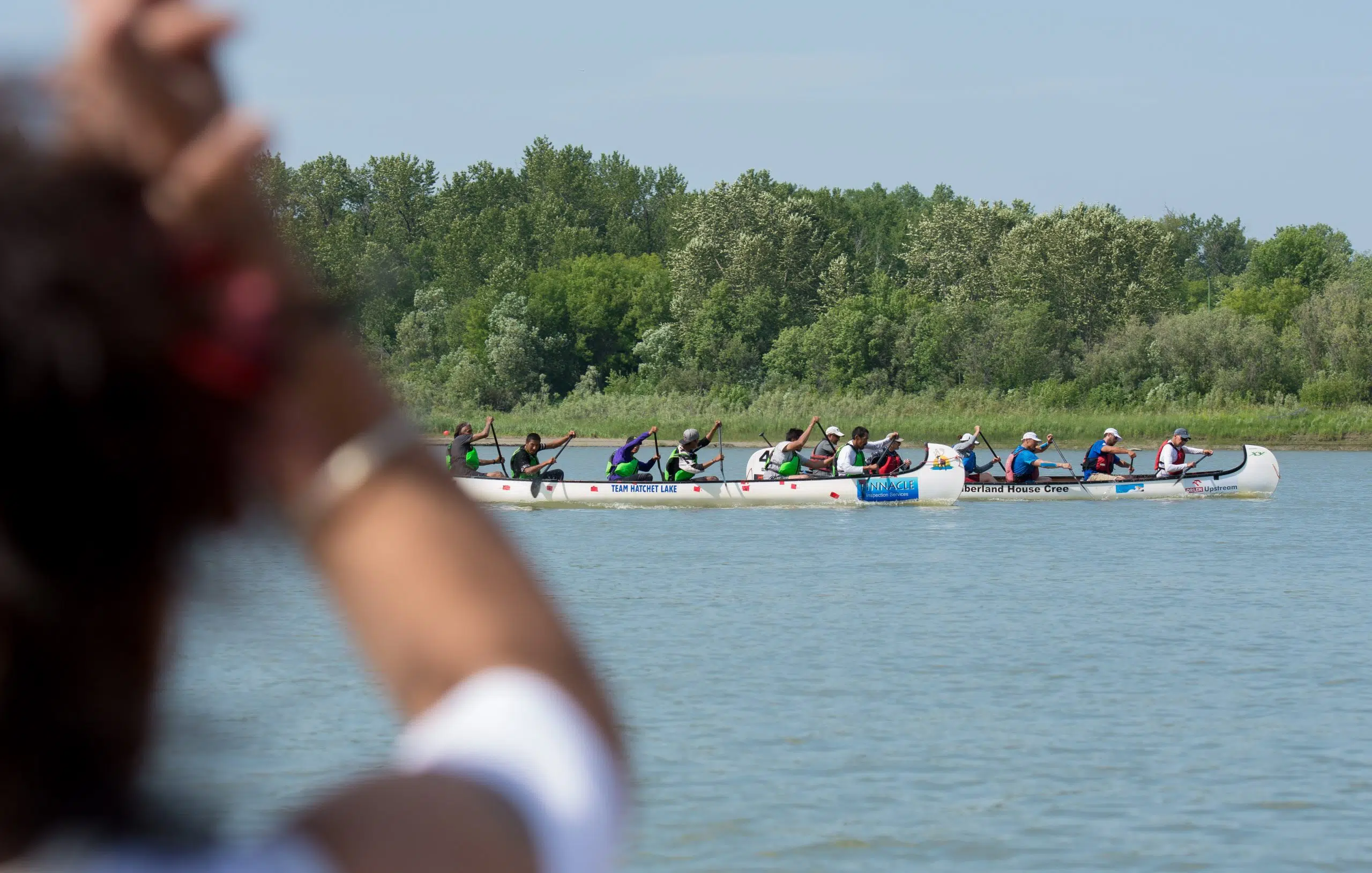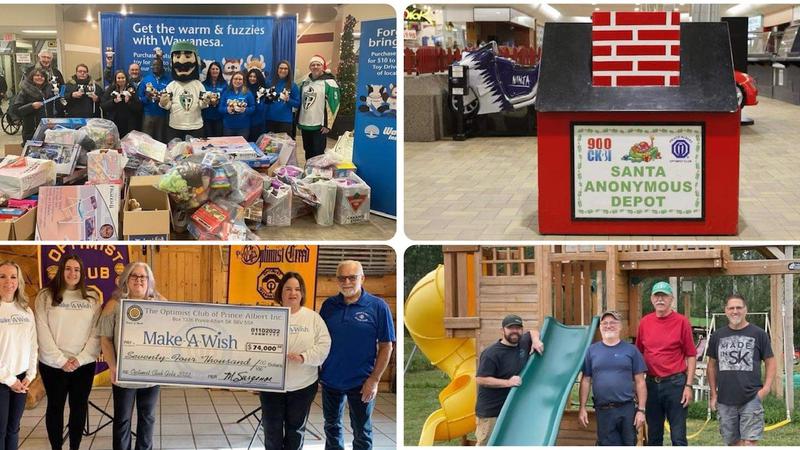
Voyageurs’ Rendezvous celebrates history of Western exploration
As racers crested the elbow of the North Saskatchewan River west of Prince Albert, cheers from the hundreds gathered along its banks could be heard.
Car horns honked, crowds screamed and drums echoed in the air as the paddlers in the 2017 Voyageurs’ Rendezvous Canoe Race brought it home along the final leg before their stop in Prince Albert. As the Northern canoes slide into the boat launch along River Street, the massive audience and members from the Prince Albert Grand Council approached the racers and welcomed them to the city.
“As a grand council, we are trying to acknowledge how our people way back then, how they assisted the Voyageurs from France and how we as First Nation and Métis played a big part in exploring the North,” Grand Chief Ron Michel said. He was shaking hands with the canoers as they came to shore.
The race departed Rocky Mountain House, Alta. on July 1 to embark on a 1,600 kilometre trek along the river to The Pas, Man. The event is one of four signature Canada 150 celebrations in Western Canada. Each racer is either First Nations or Metis with two females on each team. They range from 18 to 65 years old.


